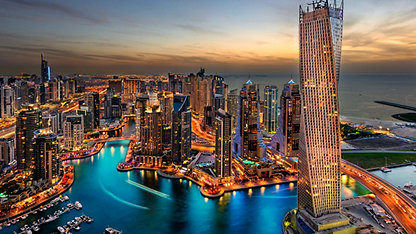The RICS European Sustainability Working Group comprises 28 members from various European countries. To be successful and have a positive impact in Europe, it is essential for our members to work together collaboratively. The main purpose and remit of the group include sharing and discussing market insights, supporting RICS' engagement activities with key stakeholders, generating relevant content, and disseminating this content.
To enhance functionality and promote cooperation within the group, we have for the first time a chair for the working group Federica Saccani.
Can you tell us a bit about yourself and your background in sustainability?
I am an architect and Building surveyor, I work in the financial real estate environment. Since 2014-15, sustainability has entered the financial real estate market, with a growing interest thanks to the regulation of non-financial disclosures and energy efficiency objectives for the real estate stock and then I started to look after sustainability. In my career, I started advising clients on technical consultancy for their acquisitions and disposal. Since 2014 I have advised clients on the decarbonization strategy of their portfolios, offering the ability to connect the real estate objectives of lowering emissions with the Funds’ strategies.
What motivated you to take on the role of Chair in the European Sustainability Working Group?
I am motivated by the significant role of RICS as a major stakeholder in the real estate and built environment sectors. RICS connects with major institutions and key market players, representing the market through its European members. This position provides a unique opportunity to engage in the decarbonization debate in Europe and contribute to the green transition.
How do you envision the Working Group contributing to sustainability efforts in Europe?
The Working Group can facilitate a bottom-up process of gathering market insights, enabling RICS to take a strong position in providing feedback on EU legislation and addressing the decarbonization debate. By bringing EU insights to RICS members, the Working Group can guide professionals through the green transition.
What specific areas or issues will the Working Group focus on?
In the first place, the group will follow on the topics of the last two years, continuing the stream-work on Sustainable Finance legislation (Taxonomy, CSRD and ESG rating) and Energy Performance of Buildings Directive, through a dialogue with the stakeholders and policymakers.
Additionally, I propose focusing on Paris-aligned CAPEX refurbishment, cooperating with land surveyors on the Carbon Removal EU Action Plan, and further exploring the relationship between ESG, valuation, and climate risks.
What are your aspirations for the Working Group during your tenure as Chair?
I aspire to boost the feedback of RICS to the EU institutions, through a wider international focus group. I aim to promote at least 2-3 new projects from the Working Group, fostering innovation and teamwork. I also want to highlight RICS' unique position as a representative of both land and buildings, twofold of the decarbonization pathway, according to all scientific trends.
How do you define sustainability and its significance in our sector today?
Sustainability is the new definition of excellence in the built environment and the approach we must take to address the climate issue. This has become the must-have for any financial and private institution in Europe, also willing to win the market competition, and we are there to advise and address more.
Can you share any personal experiences or projects related to sustainability that have been particularly impactful for you?
With the support of RICS, between 2018 and 2020, I joined the EEMAP project, a Horizon 2020 project run by ECBC and EFM, Energy Efficiency Mortgage Action Plan, a project that intended to deliver a standardised framework to stimulate Energy Efficient investment by households in the EU’s housing stock by way of a private banking financing mechanism. It had been a very interesting experience to know better the relevance of real estate in the EU Decarbonization Plan and the power of networking in the green transition.
Where do you see the field of sustainability heading in the next decade, particularly in Europe?
With the Paris Agreement targets facing delays, the focus of decarbonization efforts is likely to shift towards systemic efficiencies—such as renewable energy grids—and streamlined design processes. The European debate is growing awareness of the relevant role of Carbon Removal from the atmosphere, and this is RICS European Sustainability Working Group aims to contribute significantly.














